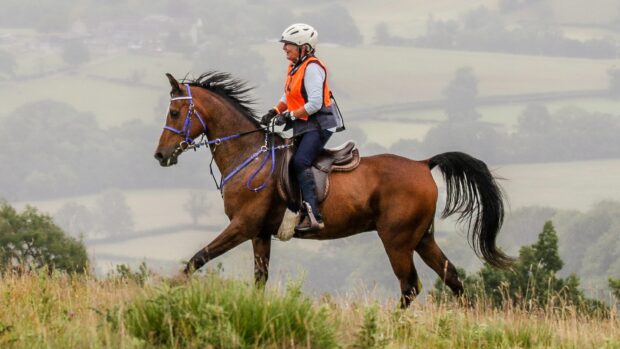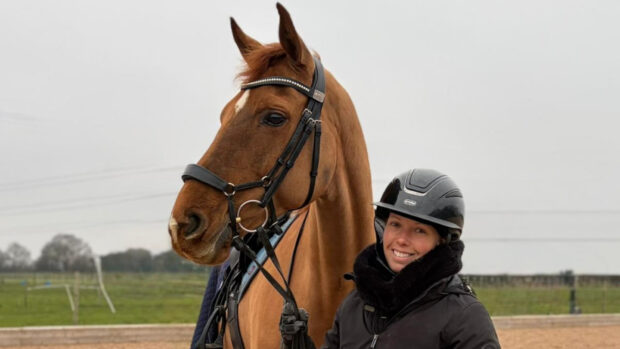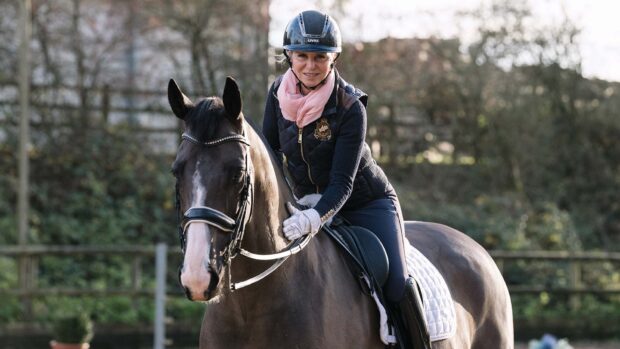The organisers of the Mediterranean Equestrian Tour (MET) in Oliva Nova, Spain, have cancelled the second part of the tour (7-26 February) as four horses on site have tested positive for equine herpes virus (EHV-1). Another horse has also tested positive in Lier, Belgium.
Ten horses, six of whom were showing signs of illness, were put in isolation on Tuesday (21 February), in line with FEI veterinary rules. All had been stabled in the same tent.
Swabs were taken, four of which were positive, four negative and two inconclusive. None of the horses are showing signs of neurological illness.
“The Valencia Veterinary Department has decided that all 82 horses stabled in the same tent as those four that have returned positive tests must remain on the venue for at least one week,” a spokesman for the tour organisers said. “It is required that all of these horses take a test on Thursday 23 February, followed by a second test seven days later. Horses that return negative tests will then be free to leave the venue. These horses will have to return to their home stables, and will be blocked in the FEI database according to FEI rules.”
A total of 989 horses have been taking part in the tour, but all others who have not been stabled in the tent affected are allowed to leave the site as long as a veterinary check shows them free of any signs of illness.
All these horses will have to return home and will be blocked from competing.
“The organising committee of the Mediterranean Equestrian Tour is working closely with the Valencia Veterinary Department as well as the FEI, and follows all protocols to protect the horses,” the spokesman said.
“For all participants at all competitions, please be reminded of the importance of the biosecurity requirements and best practices in the FEI veterinary regulations. Checking and recording temperatures twice daily is mandatory at FEI events.”
In Lier, a horse showing signs at the weekend was isolated, and EHV-1 was confirmed at the start of the week. The horse and another 25 deemed to have been in contact were blocked from the FEI database.
Blocked horses may not compete until they have fulfilled certain health requirements, imposed to minimise transmission of the virus. Mandatory biosecurity measures include isolation for a minimum of 21 days, taking twice-daily rectal temperatures and conducting lab testing for EHV-1.
“Release from isolation can only take place on the advice of a veterinarian and in order to be ‘unblocked’ and have access to FEI events, the horses will need to comply with all the return to competition protocols and have the restriction lifted by the FEI veterinary department,” an FEI spokesman said.
“We are grateful for the community’s vigilance in all matters of biosecurity and once again reiterate the importance of the horse health requirements and all the preventative measures the community can actively apply in order to minimise the risk of disease transmission.”
You might also be interested in:

‘Mistakes were made’: poor decisions and human error contributed to European EHV-1 outbreak

‘A living hell’: breeder speaks up on EHV abortion storm after seven foals die

Equine herpes virus – all you need to know right now

Subscribe to Horse & Hound magazine today – and enjoy unlimited website access all year round
Horse & Hound magazine, out every Thursday, is packed with all the latest news and reports, as well as interviews, specials, nostalgia, vet and training advice. Find how you can enjoy the magazine delivered to your door every week, plus options to upgrade your subscription to access our online service that brings you breaking news and reports as well as other benefits.




